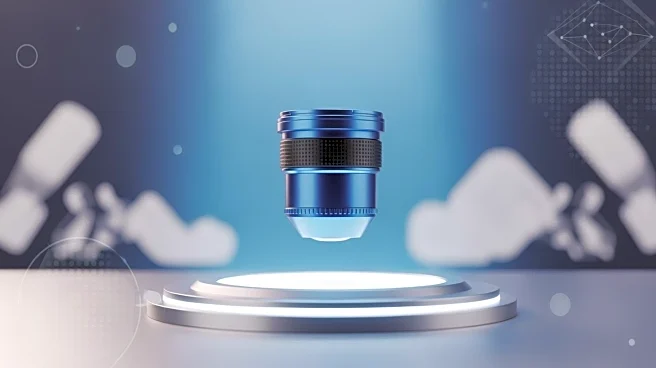What's Happening?
TOMRA Sorting Solutions is set to showcase its latest sensor-based optical sorting technology, the Iris II, at the Food Processing Expo organized by the California League of Food Processors. The event, which is California's largest food processing trade
show, will be held at the Sacramento Convention Center on February 19-20. The Iris II is designed to sort and grade diced and small fruits and vegetables with high performance, focusing on quality, size, and food safety. Jim Frost, product manager at TOMRA Sorting Food, highlighted the system's capabilities, including its use of LED illumination and CCD cameras for precise spectroscopy. The Iris II promises benefits such as labor reductions, increased throughput, and low operational costs, making it a valuable investment for food processors.
Why It's Important?
The introduction of the Iris II optical sorting system by TOMRA represents a significant advancement in food processing technology. By offering precise sorting capabilities, the system can enhance efficiency and reduce labor costs by up to 80%, which is crucial for food processors facing increasing demand and labor shortages. The ability to increase throughput by 25% and improve yield can lead to higher profitability and better resource management. This technology also supports food safety and quality control, which are critical in maintaining consumer trust and meeting regulatory standards. As the food industry continues to evolve, innovations like the Iris II can help processors stay competitive and adapt to changing market needs.
What's Next?
Following the showcase at the Food Processing Expo, TOMRA is likely to see increased interest from food processors looking to upgrade their sorting systems. The intuitive touch screen and consistent accuracy of the Iris II may attract businesses aiming to improve their operational efficiency and product quality. As more processors adopt this technology, there could be a shift towards more automated and precise sorting methods in the industry. TOMRA may also continue to develop and introduce new technologies to further enhance food processing capabilities, potentially expanding their market reach and influence.
Beyond the Headlines
The deployment of advanced sorting systems like the Iris II could have broader implications for the food industry, including ethical considerations around labor displacement due to automation. While the technology offers efficiency gains, it may also lead to reduced employment opportunities in certain sectors. Additionally, the focus on food safety and quality control aligns with growing consumer demand for transparency and sustainability in food production. As processors adopt these technologies, there may be increased pressure to ensure ethical practices and address potential environmental impacts.

















